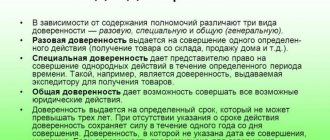Why do you need a will?
You can inherit the property of a deceased relative in the following ways:
- In law. The property is divided in equal shares among the recipients of the inheritance order. The order of priority is based on family ties.
- According to the will. The owner's own disposition in the event of death. The property is transferred to any person determined by the testator.
What does the order give to the property owner:
- The document allows you to determine the circle of persons to whom the property of the deceased citizen will go after his death. In fact, the testator changes the composition of the heirs or singles out a specific person from among them.
- At the same time, the testator determines the composition and shares of the property of each beneficiary. The presence of an administrative document not only indicates the circle of applicants, but also implies automatic exclusion from the inheritance of citizens not indicated in it.
What does the order give to the heirs:
- The will clarifies the situation with the list of property and potential claimants to it.
- If the heir is not a close relative of the deceased citizen, then he does not need to prove his relationship with him. It is enough to provide the original will.
The main limitation on freedom of disposal is the impossibility of depriving applicants of their obligatory share.
It relies:
- young children;
- disabled parents;
- disabled dependents;
- disabled spouses.
If there is information about the obligatory heirs, the notary allocates part of the property of the deceased person to the specified persons as follows:
- The primary use is intestate property. Despite the fact that the shares of other relatives will be reduced.
- If free property is not identified, then part of the assets is allocated from the assigned inheritance. The shares of the claimants under the will are reduced.
If the identified property is the property of the spouses, then ½ share is allocated from the inheritance for the husband or wife. To do this you need to submit an application. The remainder of the assets is subject to division among the heirs.
Challenging a self-executed will
A will, regardless of whether it was drawn up independently or with the participation of a notary, can be challenged. If citizens believe that there are grounds to recognize a document reflecting a person’s will as invalid, they have the right to go to court to provide evidence of this point of view.
Grounds for challenge
A self-executed document reflecting the wishes of the will-maker who has died can be challenged:
- according to the circumstances under which the testamentary disposition was drawn up and certified (for example, if the opportunity to contact a notary was not used);
- essentially - controversial positions in the text regarding the size and share of inherited property, the exclusion of someone from the number of heirs, and more.
It may be necessary to prove the fact that the person freely expressed his will in the will.
Declaration illegal
If during the trial in court a decision is made to accept the evidence provided by the plaintiffs, then the act of expression of will drawn up without the participation of a notary is considered illegitimate. In the future, the procedure for inheriting the property of a deceased citizen occurs according to the law. Judicial practice shows: despite the fact that a will that is not notarized has legal force, the heirs are forced to go through legal proceedings.
A capable and adult person is entitled to draw up a will by hand without a notary in some situations regulated by the Civil Code of the Russian Federation. A circle of persons has been determined who, under specific circumstances, may have the authority to act as witnesses and witnesses to this act of expression of will. Strict adherence to the rules regulated by law will avoid mistakes and eliminate the possibility of challenging it in court.
Order a free legal consultation
Who can be a testator
The following persons have the right to issue orders:
- have reached the age of majority;
- endowed with full legal capacity;
- having an identity document.
Expert opinion
Stanislav Evseev
Lawyer. Experience 12 years. Specialization: civil, family, inheritance law.
If a will is made in a notary's office, then the testator's legal capacity and identity card are checked by the notary. In other cases, the situation is more complicated. The law regulates this issue only in general terms.
For example, if a person finds himself in emergency circumstances, then the main requirement is the presence of 2 witnesses when drawing up an order. However, the Civil Code of the Russian Federation does not say anything about whether witnesses should check the documents or legal capacity (sanity) of the testator. Similar facts are subsequently established in court.
Is it possible to write a will without a notary?
The law establishes the option of issuing an order without familiarizing the notary with the contents of the document. A closed will can be drawn up without the direct participation of a notary. However, the document is subsequently handed over in an envelope to the notary. Witnesses must be present during the transfer.
The testator has the right to write a will without a notary. Art. 1127 of the Civil Code of the Russian Federation establishes a list of persons who have the right to certify a document.
Cases of drawing up an order without the participation of a notary
| No. | Testator's situation | Person authorized to certify a will |
| 1 | Long-term treatment in a medical facility | The head physician of the hospital or his deputy (if there is an official order to perform duties), the doctor on duty of the medical institution |
| 2 | Citizens who live in nursing homes | Director of the institution, doctor on duty |
| 3 | The subject is on a long voyage on a ship that belongs to the Russian Federation | Captain of the ship |
| 4 | A man undergoes military service | Unit commander |
| 5 | A citizen is sentenced to imprisonment and is serving time in prison | Head of the GUFSIN institution |
| 6 | Subject is on an exploration/arctic expedition | Head of the expedition or head of the field base |
| 7 | The person lives in a territory where there is no notary office | Head of local government or compulsory health insurance specialist |
| 8 | If a person wishes to write off a monetary contribution, then he can make a testamentary disposition | The document is drawn up directly at the bank branch where the funds are deposited. The order is certified by an authorized employee of the financial institution. The document has the force of a notarial will. Inheritance of the deposit is carried out in accordance with the general procedure. Funds are disbursed at the request of the beneficiary. The basis for withdrawing the deposit is a certificate of inheritance rights. |
| 9 | A person who is in emergency circumstances (military action, natural disaster) | If the situation threatens the life of the owner, then he has the right to draw up a will in simple written form. The document is certified by the signatures of 2 witnesses. |
Wills equivalent to notarized wills
Article 1127 of the Civil Code of the Russian Federation establishes rules for documents that are equivalent to notarized wills. These may include:
- a will of a person who is kept in a medical institution, sanatorium, home for the elderly or disabled. Certification of their authenticity is carried out by the heads. doctors or their deputies. They have the right to put their signatures on a document that reflects the will of the testator;
- will of a person sailing on a sea vessel under the flag of the Russian Federation. The captain of the vessel has the right to certify such documents;
- will of a person who is on an expedition. The leaders of the expedition can assure him;
- wills of persons in military service in places where there is no notary. Commanders are authorized to certify the authenticity of such wills for persons undergoing service, as well as members of their families;
- wills drawn up by persons undergoing treatment in a military hospital or sanatorium. Certification of the authenticity of the testator's signature can be carried out by the heads. doctors of such military medical institutions;
- wills of persons held in places of deprivation of liberty. In this case, the will can be certified by the head of the correctional institution.
The list of officials who are granted the right to certify the authenticity of a signature on a testamentary document established by law is exhaustive.
Is a will valid, not certified by a notary, written by hand?
Art. 1124 of the Civil Code of the Russian Federation establishes the need to formalize a will in writing. At the same time, the law does not establish the need for machine printing or handwritten registration. The exception is a closed expression of will. It must be executed in person by the owner.
A document written by a citizen in his own hand, but not certified by a notary, is valid in the following cases:
- the order is certified by another authorized person;
- a declaration of will drawn up in emergency circumstances, certified by the signatures of 2 witnesses.
A special feature of an order issued in special circumstances is the need for it to be notarized within 30 days from the end of the emergency situation. If the testator survives, but does not certify the document, it is considered invalid.
In the event of the death of a person during an emergency, the document is recognized as valid. However, to give it legal force, the heirs must go to court to confirm the fact of an emergency.
In other cases, a will drawn up in ordinary written form and not signed by a notary is invalid.
The concept of a notarized will
Every person faces the need to transfer property acquired during their lifetime to their heirs. Inheritance by law does not always allow for a fair division of the inheritance owned by the testator and may not correspond to his will. Therefore, it is best to make a will while you are still alive, but this requires certain knowledge.
Chapter 62 of the Civil Code of the Russian Federation provides for the right of a person to dispose of the property he has freely. He has the right to disagree with the legal order of distribution of the inheritance and independently choose the heirs to whom his property will remain. To do this, it is necessary to draw up a notarized will, which represents a person’s disposition of his property in the event of death, drawn up by the testator in a certain form.
This document is inextricably linked with the identity of the testator and must contain his signature so as not to raise doubts about the authenticity.
A notarized will must be drawn up in the form prescribed by law. Article 1124 of the Civil Code of the Russian Federation establishes a strict form for this document. It should:
- be made exclusively in writing;
- be certified by a notary or authorized bodies;
- have an indication of the place and time of identification;
- signed by the testator himself.
Failure to comply with the form may result in the document being contested by those entitled to do so.
The place of certification of a will is determined by the legislation on notaries, which provides for the possibility of certification of a will by any public or private notary. The place of residence of the person in this case does not matter.
However, if a travel certificate is required (for example, if the testator is ill), there are some peculiarities. A notary and authorized bodies cannot travel outside their district.
How to make a will without a notary (sample)
Such issues are resolved based on the circumstances in which the testator found himself. Basic requirements:
- The testator writes the text of the order in his own hand.
- The document must contain all the necessary details (full name, date, place of preparation).
- The last will of the citizen should be extremely clear from the text.
- The document does not contain ambiguity or errors in the drafting of the will. Otherwise, the heirs may challenge the administrative document in court.
Design rules
The basic rule for such documents is written form. Oral instructions of the testator in case of death are void.
By verbal agreement, you can transfer personal belongings to relatives, for example, photos, dishes or small amounts.
As for real estate, cars or securities, such property is alienated only by written order.
Form
The will must contain the following information:
- Title of the document.
- Date and place of execution of the order.
- Last name, first name, patronymic of the testator.
- Composition of the alienated property.
- Information about the beneficiary (full name, registration address).
- Number of copies of the administrative document.
- Mention that the text was written personally by the testator.
- Signature of the testator.
Sample of a will drawn up without a notary
Content
When drawing up a will, a person independently decides the fate of his property. He can:
- determine the number of recipients;
- distribute property in shares among heirs;
- transfer to legal successors all existing property in equal shares;
- establish a condition (testamentary refusal).
Documentation
If the order is drawn up without the participation of a notary, then the following documentation is required:
- identification;
- list of applicants for property.
Title documents are not a prerequisite. A citizen can indicate in the order “I bequeath all the property that will belong to me on the day of death.”










